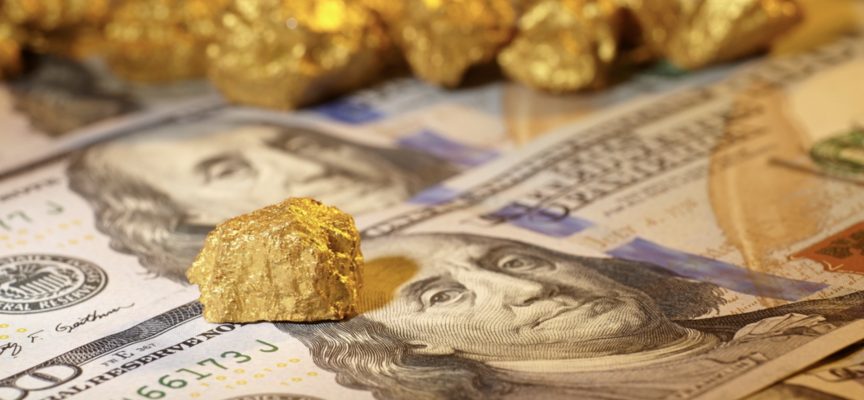As we kick off the 2017 trading year, today James Turk spoke with King World News about the reality of what is really happening in the gold market and it may surprise you.
James Turk: “This past year was a good one for gold and silver, Eric. In fact, it’s been pretty good for gold and silver since the turn of the century, particularly if you look at their prices in terms of currencies other than the US dollar…
Sponsored
In other words, performance depends on which currency you use to measure the price of the precious metals, and which currency you choose depends on where you live.
The following table looks at gold’s appreciation in 12 national currencies: 7 currencies from major countries; and the 5 BRICS nations, Brazil, Russia, India, China and South Africa.

Here are the results for silver, which last year did better than gold across the board.

Gold rose in terms of all the currencies except those of Brazil and South Africa, which is not too surprising given the big gains in gold the year before for these two currencies. Gold had a spectacular gain in 2016 of 29.6% in terms of the British pound. This result highlights the importance of owning gold to protect your wealth from currency depreciation.
I don’t often mention gold’s usefulness to protect against currency depreciation. I usually just mention gold’s main advantage — gold is money that you own, or in other words, it is money that does not have counterparty risk.
Savvy Brits Protected Themselves
But last year the Brits saw gold’s other advantage. It protected gold owners in the UK from a decline in the British pound’s exchange rate after the Brexit vote. This result is similar to what happened in 2008. Back then the pound fell sharply against the euro, so Brits who held gold were largely unaffected by the pound’s weakness that year, just like they were protected again in 2016.
In fact, it has been a rough ride for the British pound this century. If you had purchased £100 of gold on December 31, 2000, that gold 16 years later is valued at £512.45, a greater than five-fold increase. But this fact is only part of the real story. To see the whole picture, results need to be measured in terms of purchasing power. This can be achieved by looking at the cost of any product essential to the cost of living, but I like to use energy, which is everyone’s most basic component of our standard of living.
I use barrels of crude oil as my proxy for the price energy. From 2000 to 2016 a barrel of crude oil in British pound terms has risen from £19.03 to £43.54. But if we measure that same barrel of crude oil in terms of grams of gold, the price of a barrel of oil has fallen from 3.25gg to 1.45gg. So in this example, gold did more than preserve one’s purchasing power. It actually enhanced the purchasing power for any Brits who held gold during this period.
Importantly, these results for the British pound are similar to what has happened for all national currencies, as we can see in the following table.

The only difference between these national currencies is their individual rate of decline in purchasing power compared to gold. They are all losing purchasing power, but just doing it at different speeds.
The Lesson
There is an important point to make here, Eric, about managing our assets – our wealth – which is illustrated by the above tables. Let’s break out our wealth into three different components – cash, shelter and investments. In my view shelter is a basic necessity of life, so I don’t consider one’s house to be an investment. The remaining two components of our wealth are cash and investments.
Investments, of course, are wide ranging and can be many things, but cash has only one purpose. It provides liquidity. We use this liquidity to buy what we need or want to live our life, but we also use this liquidity to make investments. Everyone’s aim should be to hold liquidity that does not lose purchasing power, like all the national currencies have done in the above tables, which is the important point. Every currency is losing purchasing power.
Holding national currencies is a crapshoot, Eric. It’s a guessing game about which national currency to hold, so why hold any of them other than what’s required for your immediate needs? National currencies are a failure because they do not preserve purchasing power. So hold gold and silver instead. The precious metals are the best liquidity – the best money.”
***To listen to the fascinating KWN audio interview with Stephen Leeb, where he discusses the outlook for 2017, the gold and silver markets, what is really happening with China, and much more, and you can listen to it by CLICKING HERE OR ON THE IMAGE BELOW.
***ALSO JUST RELEASED: John Hathaway On The Big Picture For Gold Heading Into 2017 CLICK HERE.
© 2015 by King World News®. All Rights Reserved. This material may not be published, broadcast, rewritten, or redistributed. However, linking directly to the articles is permitted and encouraged.









